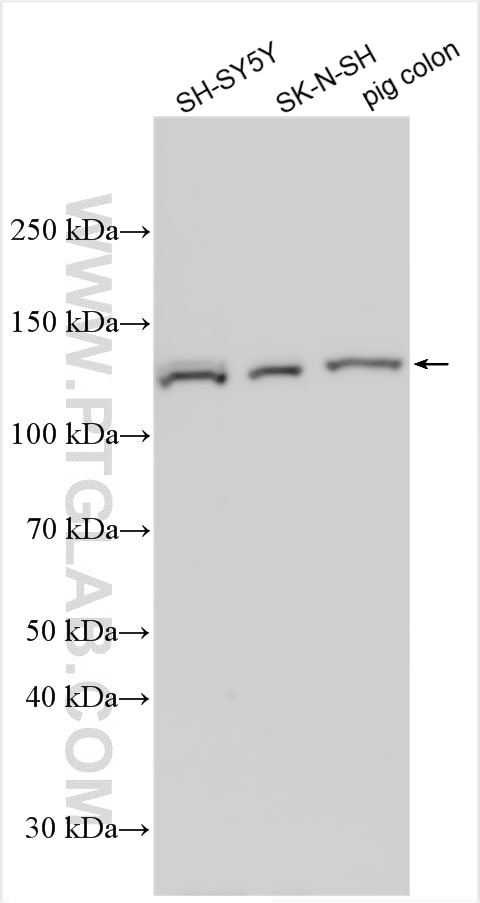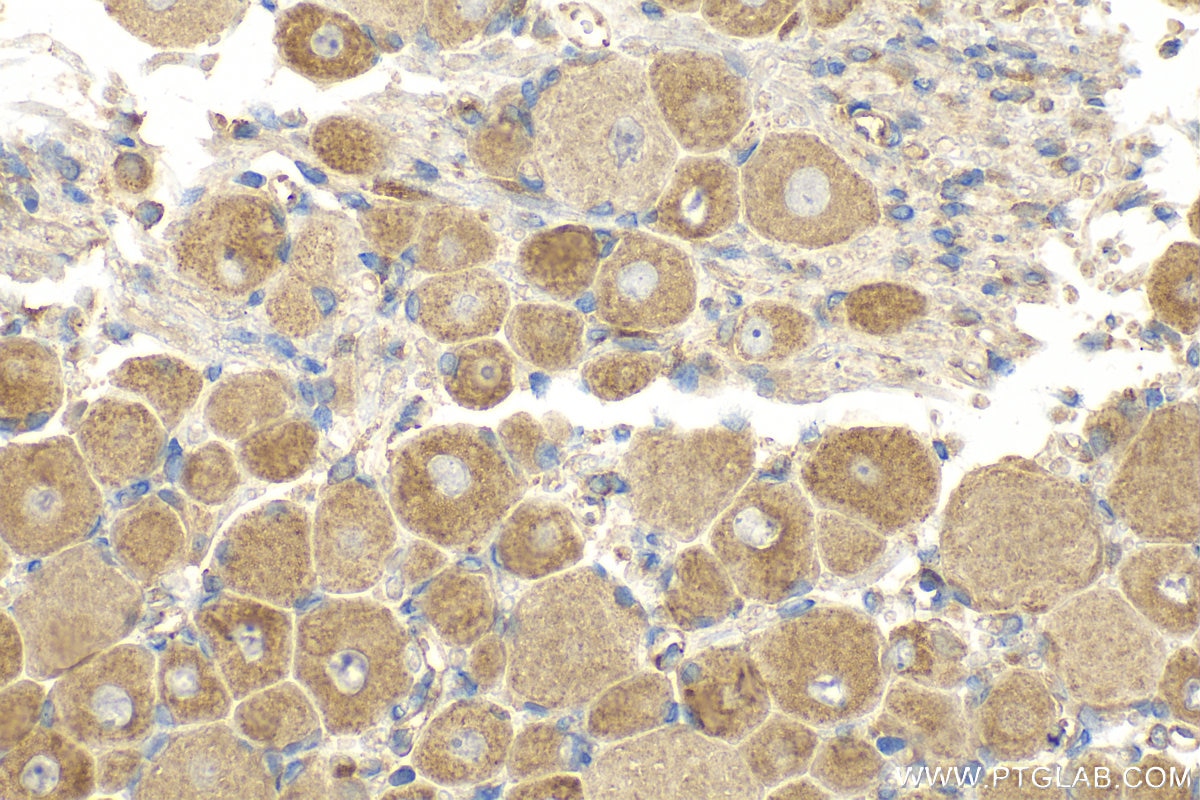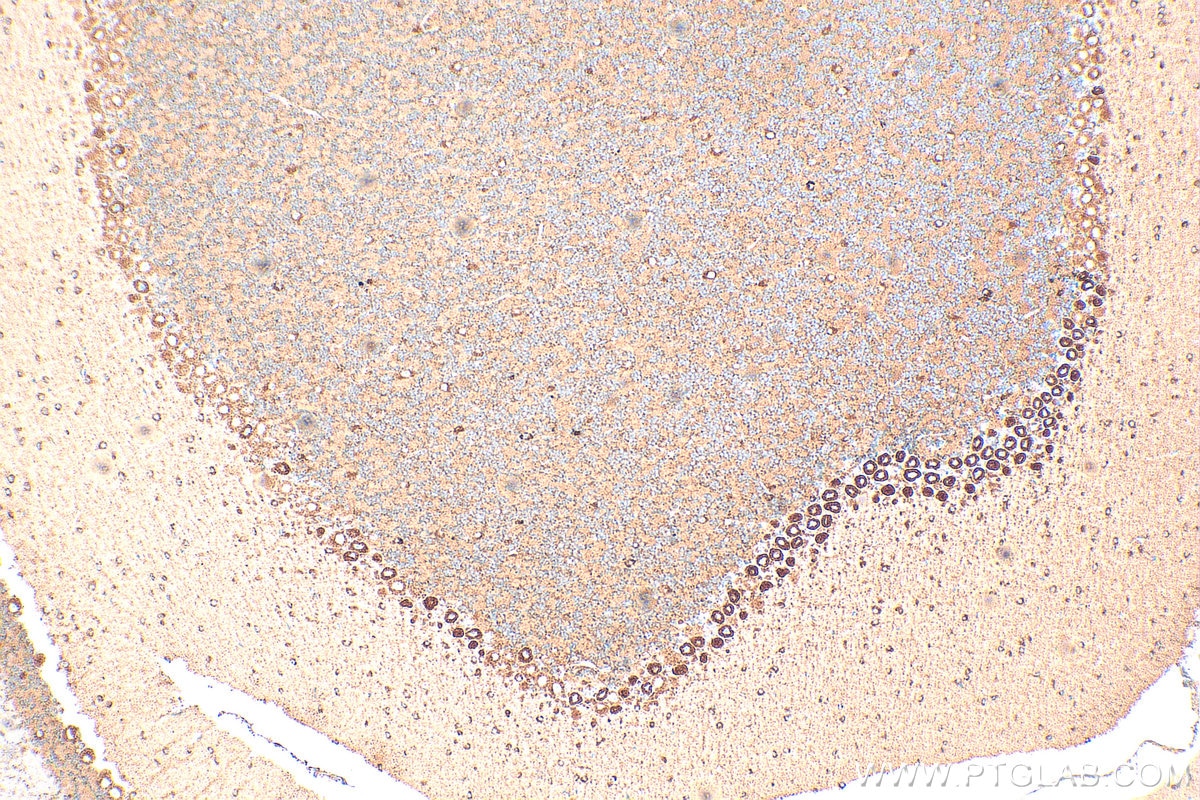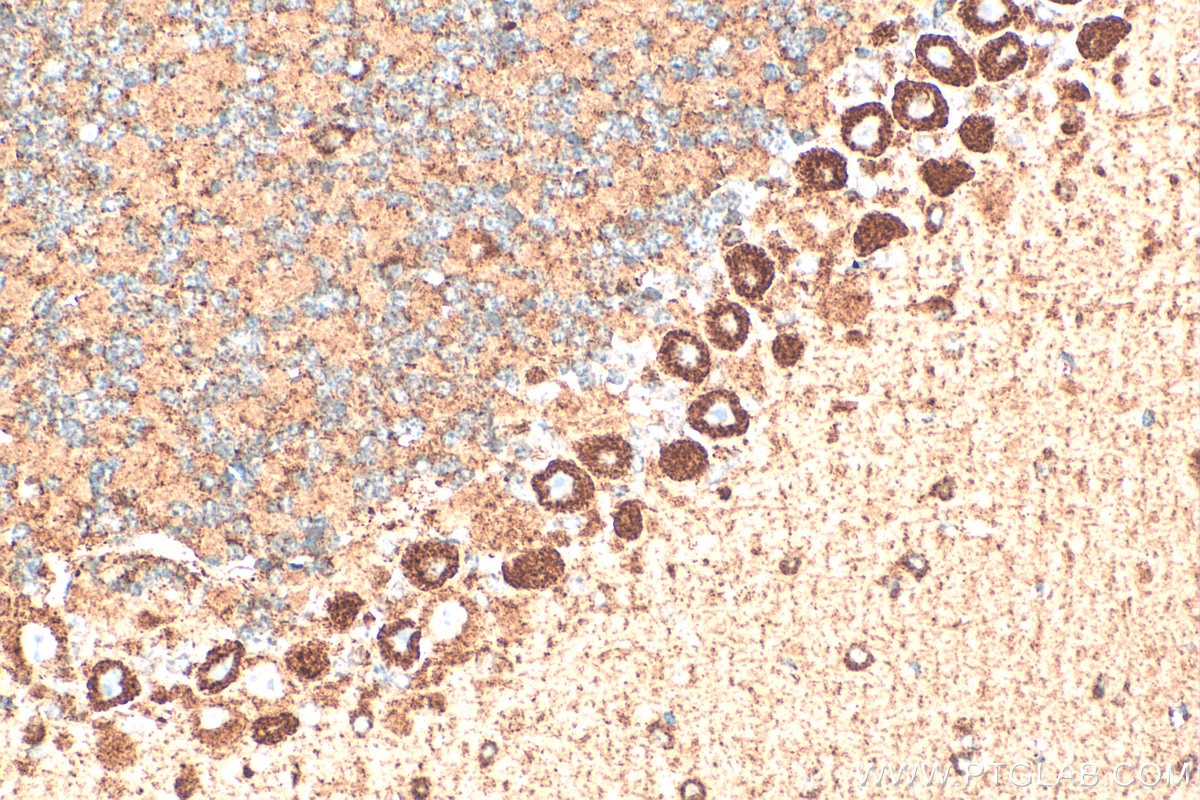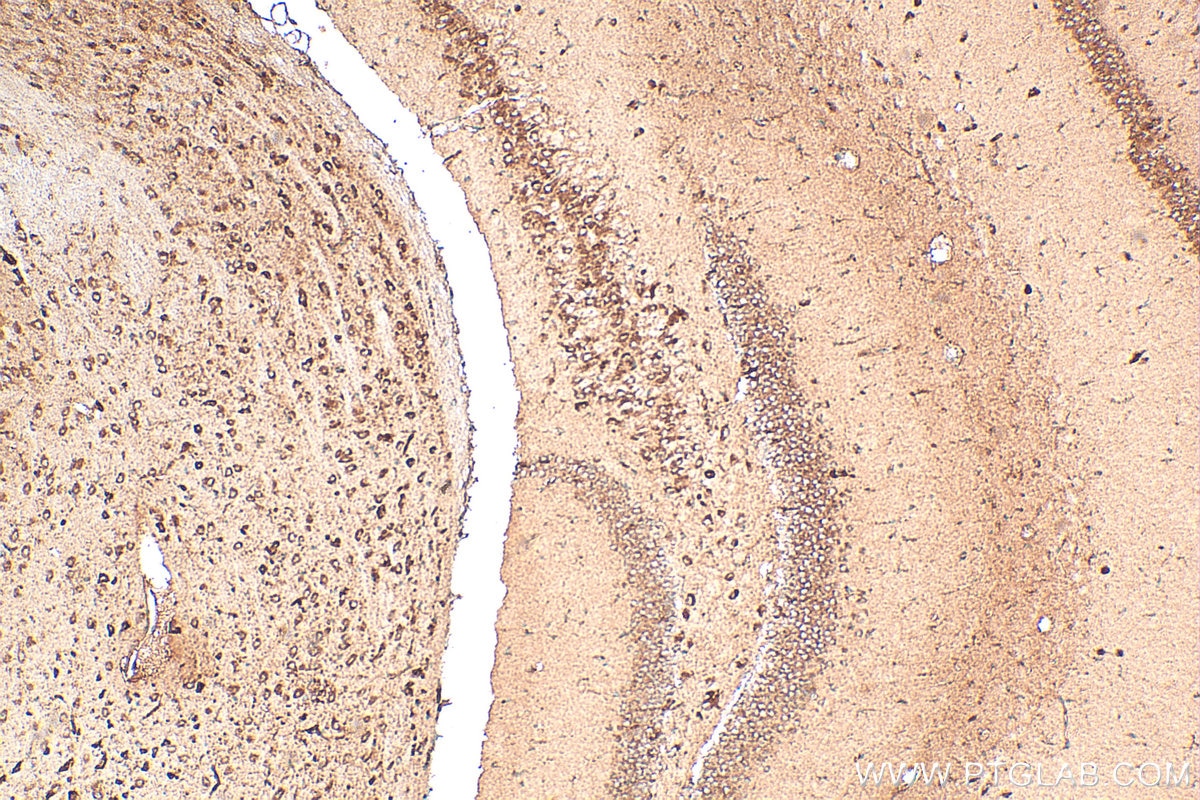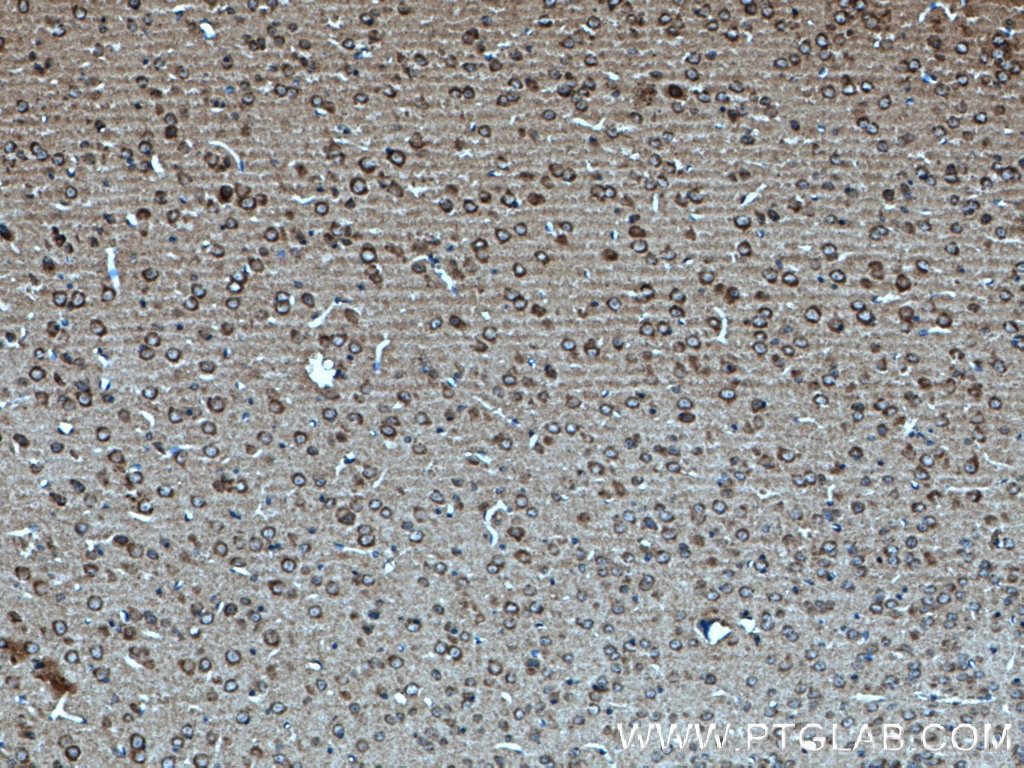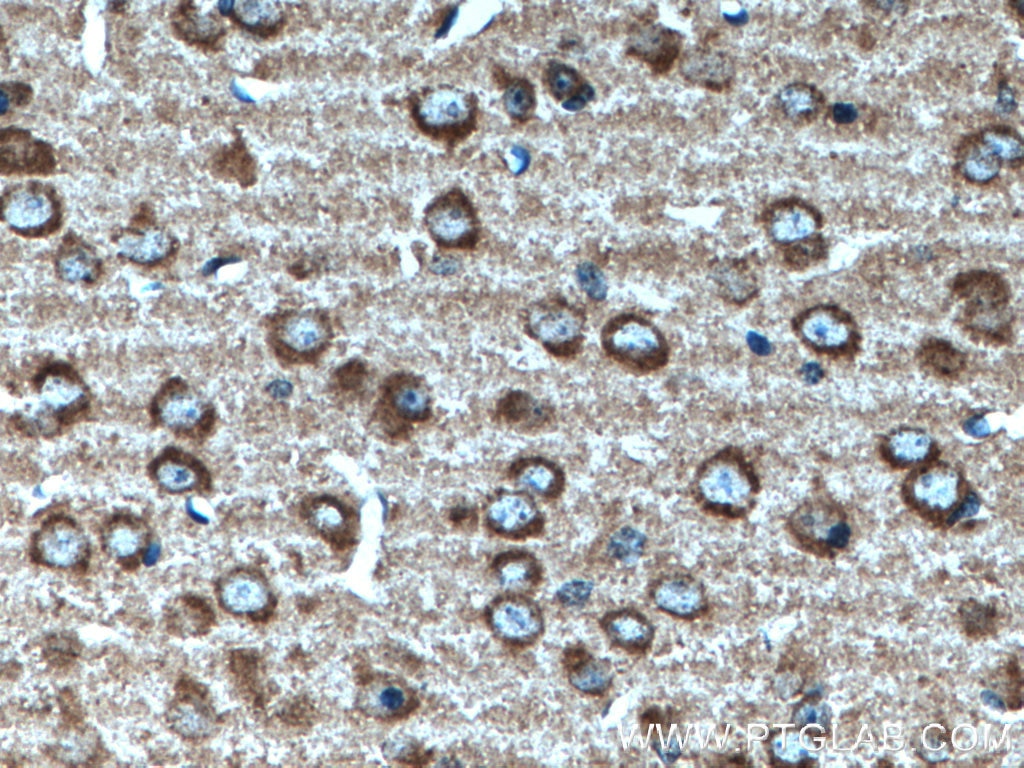Tested Applications
| Positive WB detected in | SH-SY5Y cells, SK-N-SH cells, pig colon tissue |
| Positive IHC detected in | mouse cerebellum tissue, mouse brain tissue, rat dorsal root ganglion tissue Note: suggested antigen retrieval with TE buffer pH 9.0; (*) Alternatively, antigen retrieval may be performed with citrate buffer pH 6.0 |
Recommended dilution
| Application | Dilution |
|---|---|
| Western Blot (WB) | WB : 1:1000-1:4000 |
| Immunohistochemistry (IHC) | IHC : 1:250-1:1000 |
| It is recommended that this reagent should be titrated in each testing system to obtain optimal results. | |
| Sample-dependent, Check data in validation data gallery. | |
Published Applications
| WB | See 27 publications below |
| IHC | See 6 publications below |
| IF | See 12 publications below |
Product Information
19124-1-AP targets TRPA1 in WB, IHC, IF, ELISA applications and shows reactivity with human, mouse, rat, pig samples.
| Tested Reactivity | human, mouse, rat, pig |
| Cited Reactivity | human, mouse, rat |
| Host / Isotype | Rabbit / IgG |
| Class | Polyclonal |
| Type | Antibody |
| Immunogen |
Peptide Predict reactive species |
| Full Name | transient receptor potential cation channel, subfamily A, member 1 |
| Calculated Molecular Weight | 140 kDa |
| Observed Molecular Weight | 120-130 kDa |
| GenBank Accession Number | NM_007332 |
| Gene Symbol | TRPA1 |
| Gene ID (NCBI) | 8989 |
| RRID | AB_10642143 |
| Conjugate | Unconjugated |
| Form | Liquid |
| Purification Method | Antigen affinity purification |
| UNIPROT ID | O75762 |
| Storage Buffer | PBS with 0.02% sodium azide and 50% glycerol, pH 7.3. |
| Storage Conditions | Store at -20°C. Stable for one year after shipment. Aliquoting is unnecessary for -20oC storage. 20ul sizes contain 0.1% BSA. |
Background Information
TRPA1, also named as ANKTM1, belongs to the transient receptor family. TRPA1 is a receptor-activated non-selective cation channel involved in detection of pain and possibly also in cold perception and inner ear function. TRPA1 has a central role in the pain response to endogenous inflammatory mediators and to a diverse array of volatile irritants, such as mustard oil, garlic and acrolein, an irritant from tears gas and vehicule exhaust fumes. It acts also as a ionotropic cannabinoid receptor by being activated by delta(9)-tetrahydrocannabinol (THC), the psychoactive component of marijuana. It may be a component for the mechanosensitive transduction channel of hair cells in inner ear, thereby participating in the perception of sounds.
Protocols
| Product Specific Protocols | |
|---|---|
| IHC protocol for TRPA1 antibody 19124-1-AP | Download protocol |
| WB protocol for TRPA1 antibody 19124-1-AP | Download protocol |
| Standard Protocols | |
|---|---|
| Click here to view our Standard Protocols |
Publications
| Species | Application | Title |
|---|---|---|
Metabolism IFT80 and TRPA1 cooperatively regulate bone formation by calcium signaling in response to mechanical stimuli | ||
Phytomedicine Yu-Xue-Bi capsule ameliorates aggressive synovitis and joint damage in rheumatoid arthritis via modulating the SUCNR1/HIF-1α/TRPV1 axis | ||
J Control Release A dual receptors-targeting and size-switchable "cluster bomb" co-loading chemotherapeutic and transient receptor potential ankyrin 1 (TRPA-1) inhibitor for treatment of triple negative breast cancer. | ||
Front Pharmacol The efficacy of ophiopogonanone B in treating the cough in mice infected with Mycoplasma pneumoniae | ||
J Ethnopharmacol Ligustilide covalently binds to Cys703 in the pre-S1 helix of TRPA1, blocking the opening of channel and relieving pain in rats with acute soft tissue injury | ||
Mol Nutr Food Res Menthol from Mentha piperita Suppresses the Milk Production of Lactating Mammary Epithelial Cells In Vivo and In Vitro. |


